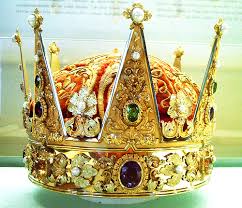The Capture of Rabbah
Second Samuel 12:26-31
and First Chronicles 20:1b-3
The capture of Rabbah DIG: Why did Joab call for David to join him in battle? What point does this story serve, inserted here in this context? Why was David so cruel to the Ammonites after he defeated them? Do you think David was fully engaged here? Or was he distracted?
REFLECT: Can you leave the glory to others, or do you need the spotlight? When does your pride get the best of you? What are you holding on to only by God’s grace?
982 BC
We almost forgot the Ammonites. The Ammonite campaign had been under way since Hanun had refused David’s chesed (to see link click Db – David Defeats the Ammonites). While the reader has been suffering with David and the consequences of his sin with Bathsheba, the murder of Uriah, the confrontation with Nathan, and David’s repentance in Psalm 51, Joab had been a faithful general. He handled affairs of state while the king was too busy with his lust and his guilt. It was a hard campaign, but now was the time for victory.
Meanwhile Joab fought against Rabbah of the Ammonites and captured the majority of the city. The royal citadel, which would be the last to fall, would include the palace, and Joab, in his loyalty to David, he wanted to leave the honor of capturing the city and its king to David. Joab knows he won the battle. He could have claimed the victory. He could have set himself up as a rival to David. Perhaps he could have won over David. But more than that, Joab remembered Uriah and the letters and the messenger and used the evidence against David. None of that, however, is ever mentioned. He deferred. He allowed David to have the victory when the king surely needed it to stop the gossip at the royal court.
Joab then sent a messenger to David, saying, “I have fought against Rabbah and taken its water supply. Once their water supply was cut off and the fall of the city was imminent. Now muster the rest of the troops and besiege the city and capture it. Otherwise I will take the city, and it will be named after me.” Because Joab would be the conqueror and it would be his by right of conquest. So David mustered the entire army and went to Rabbah, and attacked and captured it (Second Samuel 12:26-28).

He took the crown from the head of their king, whose name is not mentioned despite his reputation (Second Samuel 10:1-5). Its weight was found to be a talent of gold, about 66 pounds or 30 kilograms, and it was set with precious stones, and it was placed on David’s head. This symbolized the transfer of power over Ammon to the Israelite king. No king could wear a crown that heavy for very long, so David’s “coronation” was a brief official act of state, claiming Ammon as his territory.355 He took a great quantity of plunder from the city and brought out the people who were there, consigning them to forced labor with saws and with iron picks and axes. David also did this to all the Ammonite towns, setting up building projects throughout Ammonite territory. These would be needed in order to repair the fortifications damaged in the recent fighting, and probably also to house his own soldiers, whose task it would be to keep the conquered people subservient.356 Then David and his entire army returned to Jerusalem (Second Samuel 12:29-31; First Chronicles 20:1b-3). The crown was very valuable, so David took it along with the abundant spoil he found in the city. Most of the wealth went into YHVH’s treasury and was used in the building of the Temple. And so ends David’s last great war. He will now begin to suffer the long-term consequences of his sin when his son Ammon rapes his daughter Tamar.
The terrible failure of David is important to the narrator of Samuel. Throughout his books the writer introduces the leaders of Isra’el: Eli and sons, Samuel, Sha’ul (not to mention wannabes like Eliab and Abner). All of them are flawed in some way, Eli’s sons and Sha’ul severely so. Even Samuel falls short in some respects (First Samuel 8:1-2 and 16:6-7), and now David, the covenant king. Just because David was God’s beloved and chosen king did not mean that he hung on to the kingdom by any means but by grace, for he was a son of death. In the books of Samuel ALL human leadership is flawed. Which means that the united kingdom (made up of the southern kingdom of Judah and the northern kingdom of Isra’el), if there is to be one, can only be established and maintained by grace. Therefore, the books of Samuel make us lift our eyes and wait for the messianic King.357



Leave A Comment